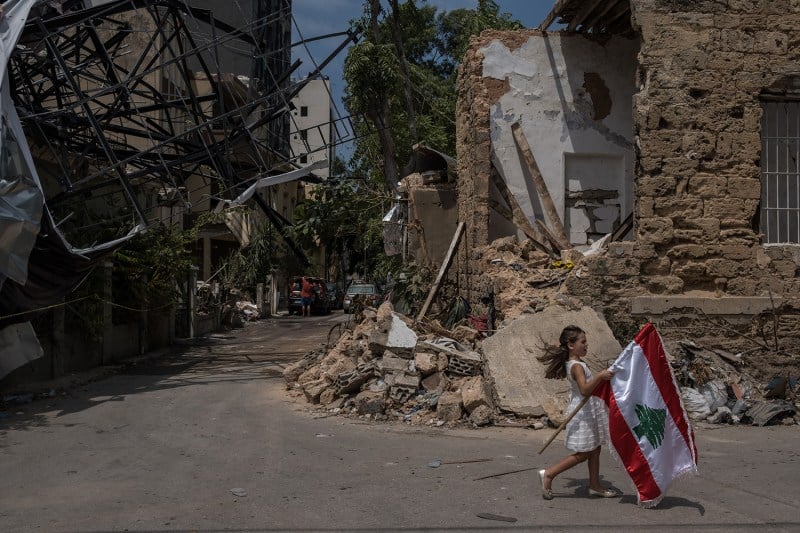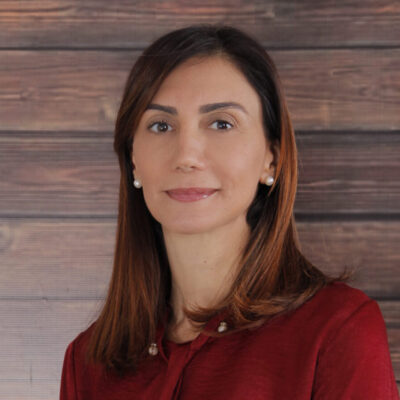
I published my first article on this platform just a few weeks ago. It was a personal experience that felt important enough to share. I vowed to avoid political topics because I believed they were a complex blend of ideologies and interests beyond my expertise. That was before the atrocities unfolding in my country - Lebanon - turned my world upside down.
By Roula Kmeid
A list of business topics to write was ready, and I was content in my niche. Just a few weeks later, the painful memories from the 1990s and the war of 2006 resurfaced. The human massacres claiming the lives of innocent children and elderly people and the displacement of countless families are heartbreaking tragedies that cannot go unnoticed.
Ever since a wave of questions has haunted me: When did the world turn so cruel? How could humanity lose its compassion? Where have the humanitarian organisations advocated human rights for so long? Why is the international community so silent in such chaos and suffering?
It seems that all the lovers of Beirut have disappeared. Those who flocked to our ski resorts, based on our sun-kissed beaches, danced the night away in our vibrant nightlife and savoured the delights of our cuisine.
They are all gone.
Countless questions remain unanswered, but some answers do exist. If we want to shield ourselves from the complications of political analysis and pretend they do not exist, let us jump to a non-controversial aspect: the facts and challenges.
Yes, they are immense. The crisis and war are having devastating economic impacts, including mass displacement, poverty, and unemployment, socialrepercussions, agricultural and heritage losses.
How can we ever foster healing and reconciliation after such horrible destruction? Can media outlets contribute to better dialogue and understanding? Can we, as citizens, contribute to rebuilding our country and securing a better future?
Over the years, we have heard the familiar refrain: “From the ashes, we shall rise, the phoenix shall fly again... We, the resilient people of Lebanon, have repeatedly demonstrated our capacity to endure and rebuild…”
Is mere resilience enough by itself?
Can we rebuild a nation repeatedly shattered by conflict and corruption? What does it take to rise from the ashes and create a sustainable, just, better future for Lebanon?
Education and policy reform, which would have a multidimensional impact, are the foundations for a better Lebanon. Investing in the youth and rewriting new policies can create a just, equitable, and sustainable society.
Why am I highlighting education and policy reforms, particularly?
Education takes root in schools, our environment, and our social circle. Past experiences have, to some extent, failed, and we have observed that failure in the mindset and fixed ideas that generations have inherited, generation after generation.
By this, I do not mean the school’s curriculum and societal values but rather the political affiliations and convictions. Therefore, we require an education system that fosters civic engagement, critical thinking, and empathy: a system that would cultivate a culture of tolerance and understanding instead of hatred.
As such, our youth would become agents of positive change, not merely reproducing the previous generations.
Policy reform is a much-needed action to address issues such as corruption, inequality, and many more; bold policies have a transformational impact and keep pace with the rapid changes impacting every level in our lives.
Perhaps it is time to admit that education and policies are performing poorly and should be rebuilt on new, solid, fresh foundations. Then my final question would be: who will take the lead?
Do we always have to act as the “adopted child” and wait for extra power, a secret friend, some miracle to get us out of the mud we get ourselves into, or we get often pulled into.
No, we need nobody but each other as Lebanese. We are the resources, and we have the resources. United in solidarity, we can reshape the future of Lebanon. Who is better suited to lead and inspire than us, united as we can be, mirroring the success of countless Lebanese abroad?
This is our chance to stop the “brain drain” that has plagued us for years, exacerbated in the past 5. Let us make a unified history, the foundation of every prosperous nation.






